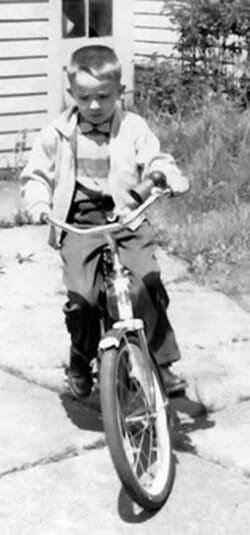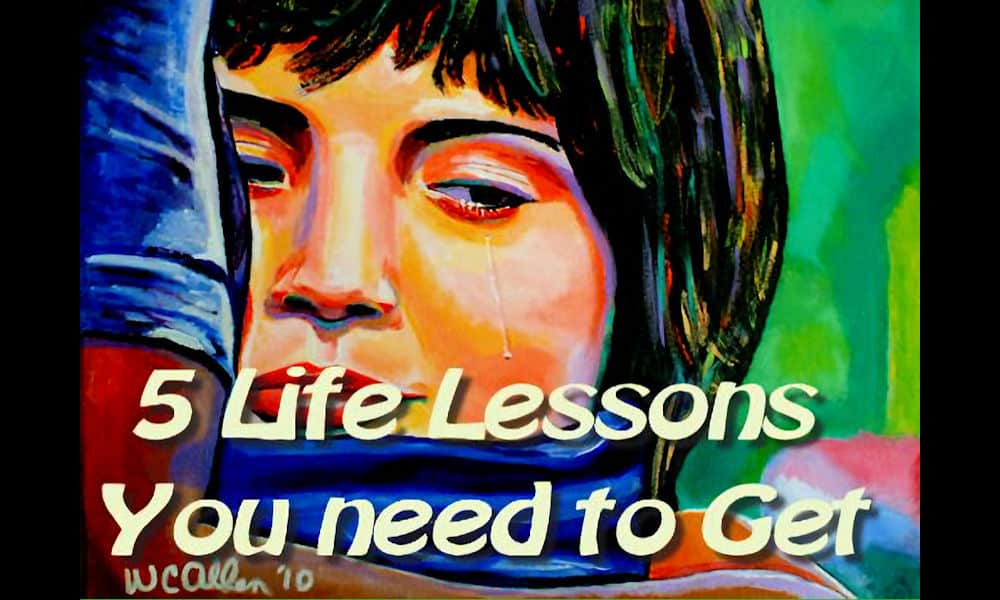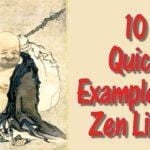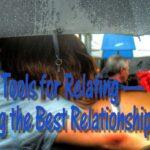- Ideas for Zen Living: 12 Presence Presents
- 5 Communication Tips
- 10 Quick Examples of Zen Living
- Better relating — 6 Ideas
- Fearless Living — 7 Tips
- 5 ways to pay attention
- 10 Zen Principles to Help You Live Life Better
- 7 Ways to Live in This Endless Moment
- 5 Key Concepts for Zen Living
- 9 Tools for Relating
- 3 Riffs on Relating
- Vulnerability — 5 things
- 5 Life Lessons You Need to Get
- 9 Ways to Screw up a Relationship
- 10 Things Your Mommy Forgot to Tell You
5 Life Lessons You need to Get — some lessons are obvious, but the really important ones are both hidden and hard. Penetration of the veil into the depth of who we are is the only way to “work through” the secret of you.

Psst!! Hey!!!
** Want more great writing designed to help YOU to shift your behaviour?
** Want to learn how to find, build or deepen your principal relationship?
** Want to know more about Zen living and being?
Check out Wayne’s books! (amazon link)
Or, check them out right on our site.
It’s amazing how unprepared most folk are, for living, for relating, for finding meaning in a purposeless world.
Me too. I remember back in 1968, heading off to Chicago to do my B.A. — and bumping my nose repeatedly over what I thought ought to be happening, vs. what was actually going on. Lesson after lesson, most quite painful. Some of my choices were merely stupid, others dangerous, illegal. In each case, a consequence slapped me across the chops.
The saving grace came from a couple a people. My dad, for one. And a simple line, that is one of my mantras: “That’s too bad. What are you going to do about it?” No rescue, no white knight, no bailouts (financial or otherwise.) Basically, “Whine, then get up and fix it.” Always, always, after a hug.
1. Letting Go
I saw early on that people wanted to connect — indeed, they were connected –but were defended against experiencing the connection. I tried to help them open up, to remove their defenses. Then a natural process of connecting could show. I used to say, “If people let go, they will slide naturally into intimacy.“
Wong and McKeen, Illuminated Heart, p. 27

I was re-reading my Masters thesis, and amusing myself at my all-too-earnest prose. Called “The Fear Factor,” it’s clearly a stage in my development (from 1983) and has many aspects that no longer work for me.
Much, however, still resonates.
I wanted to identify the factor stopping people from truly knowing themselves, while also adding in a ton of theology and psychology stuff — it was, after all, a thesis.
I do find it hard to believe that I thought that way, but it still reads OK. Anyway, I identified fear of others and fear of one’s true self as the cause of alienation from what Theologian Paul Tillich called the Ground of Being.
One major shift since then is I no longer have an opinion about the Ground of Being thing. I let go of it.
Here’s something I quoted from Ram Dass.
As you look at many people’s lives you see that their suffering is in a way gratifying, for they are comfortable in it. They make their lives a living hell, but a comfortable one.“
Ram Dass, Journey of Awakening, p 15
Letting go of such drama-making has two heads
Physically — we need a path to our bodies. It’s why we teach meditation, Qi Gong, and suggest things like yoga and the martial arts. And Bodywork, lots of Bodywork. The first line of defense against finding intimacy is a tight, non-responsive body. Ben Wong uses the word “defended,” Reich the word “armoured.” Both refer to blocking out others by shutting down and tightening up.
Mentally — even those who avoid digging around in their patterns recognize that a lot of “whack stuff” is going on in our heads. We fear ourselves, and we fear others. At some level, we realize that the solution is getting to know ourselves. If we let ourselves fall victim to our own fear(s), we try to run away from ourselves — we clamp a lid on our desire to know, and hide from intimacy with others.
“Loosely” defined: intimacy is letting others in past the defenses, so they “see” more and more of who I am, and what I’m discovering.
Intimacy takes place in dialogue.
This work can be described in metaphor — it’s what I call “the dance.” It’s a nice metaphor — sort of like what happens on “Dancing With the Stars.” Over the weeks, the “stars” find their legs and balance and feet, and begin to be co-creators of the dance with the pros.
In the process, emotions, thoughts, feelings become more apparent — they’re right out there on the dance floor. Less defended, more open.
The dance starts out teacher to student, and ends up as a partnership, a flow, a sharing.
Take away: The tendency is to pull back, to fantasize about life, as opposed to living it —
to wrap the “uncomfortable familiar” around us like a cloak.
Letting go requires activity. Movement. Contact. Presence. Revelation.
And all of this requires a dance partner — someone who will move with you — from beginner to co-creator, to master. You can’t do this work alone, so find someone to work with, and push. Hard.
2. Uniqueness, Commonalities, and Specialness

The curse of the 60s and later is the creation a generation of people who think they are “really, really special.” This is expressed in expecting special treatment, undeserved rewards, etc.
From this has come an entitlement that is endemic.
There are masses of folk who think that the world has nothing better to do than to look after their every whim and desire.
They are offended when their mistakes are pointed out to them, and expect to be “president of the company” right out of school.
All people have commonalities – for example, our bodies are pretty much the same — food, for almost everyone, goes in one end and comes out the other.
Another, more interesting commonality is the presence of the “void.“All of us sense the “non-being” that comes with “being.” What separates us from other animals is that we know that we are “born to die.”
This felt-sense, empty feeling, (a key understanding in Zen…) is shoved down, repressed, ignored — yet it can’t be completely eliminated. We end up with an interior ache, a gnawing knowing that something isn’t quite right — there is something huge looming, and pretending it’s not there results in numbness and anxiety.
Angst is intrinsic in our being. The more we exist, the more anxiety we feel. The challenges is to embrace and accept this anxiety; this is self-affirmation in the face of non-being.”
Illuminated Heart, p. 155
Specialness is a way to attempt to “avoid” non-being. It’s an insistence that the world (others) pave over the pain of alienation and non-being. The problem with this approach (and entitlement in general) is that it demands an external cure for the internal process of being human.
On the other hand, there is uniqueness, which each of us possess. But not how we usually think of it.
Uniqueness is real. My story, my experience, is unique to me. Now, there is a “scary” element to this — my uniqueness means that I am essentially alone in the universe — no one can (or does) see through my eyes. Conflict, all of it — comes from precisely this — the way I see the world is the way I see the world.
Uniqueness is demonstrated in how we act — it occurs only as we let our bodies do what they do. In other words, we are unique in how we express our flexibility to be whomever we choose to be.
Uniqueness is an element of “the void.”
Uniqueness is unique. Because of the ubiquity of fear, most decide that the scariness of non-being “snuggled up” against being means it’s best to hide under the bed. To blend in — to fit in — to follow the dictates of “the powers that be.”
Many persons will not enter the path to being, however, because they instinctively draw back from the experience of nothingness. [the void] Instead of truthful consciousness [being in the face of non-being, uniqueness] they prefer… borrowed pretenses… They give themselves over completely to what their culture accepts as real; that is, they allow the myths of their culture to shape their lives.“
Michael Novak, The Experience of Nothingness, p. 80
It’s incredibly difficult to live life with one eye on the past, one on the future, one eye on others’ reactions, and another eye on “the rules.” Oddly, demanding specialness is exactly this path, as is hiding, giving up, and waiting from someone to ride in and rescue you.
Take away: In order to find our uniqueness, we must look unflinchingly inside. We must challenge our belief in external rescue or external definition. If we are stopping ourselves, we need to look at our stories, let go of everything that is not centered in “me,” and then tackle the arduous task of integrating not just what we like about ourselves, but the “whole enchilada.” Like a dance, this is best accomplished face to face, in openness, honesty, and vulnerability.
3. people are as they do
With awareness and responsibility, people are not doomed to be victims of their past or upbringing, or even of the universe. As individuals distill their understanding of their behavioural tendencies and arrive at clear decision about what patterns they want to emphasize, their lives can be different.“
Illuminated Heart, p. 397
Neurosis is the way of avoiding nonbeing by avoiding being.
Paul Tillich, The Courage to Be, p. 66
Yeah, I know. It’s so very, very “contemporary” to proclaim, “I’m a human being, not a human doing!” and then to get your “smug on.” This expression has created generations of quiescent navel gazers. Ashrams, yoga centres, zen centres, are full of them.
Life is quite real, thank you, and all we have to go on to figure out the game is our reaction or response to what we perceive. It’s like this (and all of) my articles. Nice words, yet words are useless if they do not lead to both a change of heart, and a change in behaviour.
My upbringing, mistakes, stupidities, missteps — all irrelevant, so long as I move past them. Back to the quote, above, uttered repeatedly by my dad: “That’s too bad. What are you going to do about it?” Emphasis on “do.”
You can’t change who you are, (impossible — no way, no how. This does not stop people from trying — they implement “reflection, or prayer, or affirmations” — otherwise known as bullshit internal games.)
You change what you choose to do, right here, right now. In the quote above, Wong and McKeen speak of “patterns they want to emphasize.” What this means is that “everything” is still there — function and dysfunction, weird and wonderful, and all that changes is what is emphasized — what the person brings foreground, what the person moves to background.
Your “doing” is never conditional on externals. Nothing is holding you back, this one time, from acting in variance with what you did last time. And nothing keeps you from repeating what works, and stopping repeating what doesn’t, this one time.
Nothing holds you back, that is, but you.
The other thing about doing is this: the only thing that matters is what you do. What you say is immaterial if it’s not backed up with an action that matches. If I say I’m going to communicate self-responsibly, and then there’s an issue and I tear you a new one, I am out of integrity — a liar — no matter how much I whine and protest and try to shift blame.
Take away: you are not being yourself if your doing is not being done. Get off your butt and your buts, pick the next thing, and choose, consciously, to do what you say. Open the door on your fears and triumphs, darkness and light, and act from there. Your choice is to engage fully and uniquely, or hide behind fancy words and excuses.
Your choice!
4. Your Job is to Figure Yourself Out
There is no ultimate “truth” — only individual perspectives to discover. The individual conscience is the final authority, with consequences for every decision and action taken.“
Illuminated Heart, p. 39

write my Sunday School lesson…
For at least the first 18 years of our lives, people were telling us what to do, and making it seem (through persuasion to coercion) that these perspectives were “true,” “good,” and “right.”
We were socialized by those invested in getting us to behave according to the rules of our culture. Because we accepted much of this as “true,” we developed a morality based on tribe, culture, and often, some version of “god.”
Because of the underlying fear of being ostracized, we toe the mark. We want to belong. To do so, we compartmentalize. We stuff stuff into drawers, hide thoughts that deviate from the norm (thus, the “deviant thought or behaviour.”) We become fractured.
The “unapproved of” feelings that arise are disconcerting, but mostly we’re encouraged to bury them under a haze of diversions — social, chemical, and commercial. We are taught to distract ourselves, much like mommy distracted us with a favourite toy. This form of stuffing also led us to believe that “mommy” would always be there, toy in hand — that it was the duty of some “other” to rescue us from our tantrums.
If we keep our attention on externals, and blame feelings on others or the situation, we miss the only important data — the lesson that our discontent is internal, and points to our need to explore our beliefs and behaviours.
In one of my books, I wrote about this story: a female client broke off her engagement because her fiance had sex with a female friend. The couple got back together, worked on the relationship. Then, she had sex (on a pool table) with a male friend.
I suggested that the two events were the same. She replied, “No! He had sex because he was horny, and I had sex because I must be in love!” Hmm.
I continued to invite her into her own process — one where opportunity and horniness met to “cue up” some horizontal mambo. Her partner may have provided some visual eye-candy, but it was “all her, all the time.” Her difficulty was that sex was in a compartment labelled “love,” and “good girls” don’t have sex on pool tables, so “obviously” this was love, not sex. She fired me because I didn’t understand.
My brain still hurts from trying to keep up with her twisted blaming.
Take away: what we are doing, thinking, saying — that’s the meat of the matter. Rather than cast about for the “groupthink” to explain away your actions, figure out what your “rules” are, wonder if they make sense (hint: most don’t,) and see what you’re parking away in the hidden compartments of your mind and life. Challenge every belief, restriction, and blockage. Turn your attention from the world and the behaviour of others, to a deep self-exploration. It’s the only thing you have a chance of understanding.
5. We Learn By Saying “Yes”

Odd how we’ve forgotten this one. In our early lives, we learned ONLY because we said “yes.” I’ll use learning to ride a bike as an example, because we’ve all been there.
You learn to ride knowing that you’re going to fall. A Lot. Mom or dad gives you a push, but after that, you’re on your own. Stop pedalling, asphalt. Veer, asphalt. Forget how to brake, asphalt. Stop paying attention, asphalt.
And yet almost everyone who continues to hop on ( to say “yes!”) , learns to ride.
Same with most stuff. We don’t know how to (walk, run, climb stairs, do math, kiss, write papers, bonk, etc.) and somehow, through doing, we learn. And the more we practice, the more we improve.
And yet, we also seem to forget how this works.
To learn to communicate, you have to learn a model, and then practice it continually. To hug comfortably, you have to learn and practice. To explore your inner theatre, you have to learn, and practice.
Noticing a pattern?
Take away: much of what I do is to provide experiences that my client has been avoiding. I open doors through comments and Bodywork, and invite the person to walk through and look around. The ones who choose to stay stuck offer a ton of excuses, and not a lot of experiencing.
Yet, the only way to shift ourselves from “non-bike riders” to “bike riders” is to get on, get a push, hold on, and pedal. And then brake appropriately. Again and again. You can always find someone like me who is willing to give the push, but you’ll never find someone to do the pedalling, balancing, and braking. That’s your job.
Sitting on the curb, whining about how hard it is, how scary it is, gets you a sore butt and not much else. Find the things that you scare yourself over, and find a way to tackle them, one by one. Through doing.





